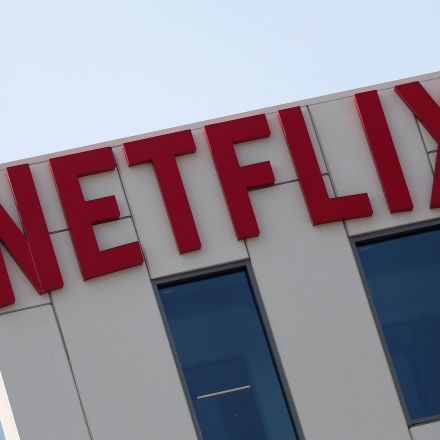Pros and Cons of Franchising in the Food Industry
-
Con: It is expensive
All those benefits we just mentioned come with a price tag which can be quite hefty. One of the disadvantages of opting for purchasing a franchise is that it can be quite a large investment. A brand name has its worth and the larger corporation we are talking about, the more expensive buying into the franchise is. The price can range from $10,000 to hundreds of thousands of dollars. In addition, remember that buying a franchise does not essential “buy” you the brand. You acquire the right to use it, but you will be required to make your contribution in return. When calculating how much money you will potentially be making, don’t forget to take ongoing royalties into account, which are a certain percentage of your profits. Needless to say, they will somewhat reduce your income. That said, a franchise can often still be the cheaper option when compared to starting a food business from scratch.
Pro: A safer investment
When it’s about such a large amount of money, it’s only natural that we are looking for the lowest possible level of risk. In this aspect, opting for a franchise is your safest bet. As we already said, a franchise grants you an instant market presence with an already well-known brand name. That means that some of the risks are mitigated. You get a head start and it won’t take as long to become profitable as it would with your own business. In addition, it’s not only the brand name that makes this investment safer. Successful franchises are successful for a reason. They have their tried and tested way of doing business and you won’t have to go through trial and error to find it, wasting money in the process. Naturally, there are still risks involved, just like with any other business venture. However, since you won’t be making any crucial business decisions by yourself, the chance of error is much lower.
Con: Little privacy
The next drawback of franchising instead of starting your own business is a lack of privacy when it comes to your finances. Since your franchisor will always be in control, they have the right to oversee your finances. They are not particularly doing this to pry on you. Franchisors are constantly working on improving their operations and for that, they need to have all the information about how the franchises are doing financially. They also need to keep track of royalties. However, for you, this means that you have no privacy. Nevertheless, this can also be turned into an advantage. Since franchisors oversee your performance, they will be able to tell if something is not going the way it should and perhaps point you in the right direction. Depending on the agreement, you might also gain insight into the overall financial performance within the franchise and improve your profitability.
Pro: Training and support
The next important advantage of franchising might be what convinces a lot of inexperienced businesspeople-to-be. Starting a business without guidance is daunting, which might make you hesitate. However, what if you didn’t have to do it alone? It is often said that franchising is doing business for yourself, but not by yourself. Franchisors often offer extensive training for their franchisees, which can be an amazing opportunity for those looking to further their skills and start a new career. It is both in your and your franchisor’s favour that your business venture succeeds. Therefore, you will be able to rely on their support when you need it. Still, the level of support provided greatly varies between franchises, so be sure to inform yourself well beforehand not to find yourself left to your own devices.
Con: Potential restrictions
The next thing you need to pay special attention to is the potential restrictions you might be facing if you decide to try your hand at franchising. These will differ in each case so you should study the FDD (Franchise Disclosure Document) in great detail before signing anything. For instance, if you want to start your own business at some point and you are using franchising as a stepping stone, look out for any restraint of trade clauses in the agreement. These serve to protect the franchise and prevent franchisors from doing business in the same industry for a specified length of time after terminating their contract. Another potential disadvantage to pay attention to is the renewal rights in the FDD. For those who have decided for franchising as their long-term employment plan, perpetual renewals rights would be ideal, however, if that is not the case, you will not be able to continue your business after your contract ends and you will lose the fruit of your hard labour.
-
Out of all the industries you could choose to invest in, the food industry is one with great potential for success. That said, it is certainly not an easy industry to enter. The initial investment you have to make it on the higher side; after all, there are a lot of expenses involved, including real estate, equipment, supplies, and so on. In addition, the competition is tough and it’s not easy for a new food business to get noticed and gain a loyal customer base when people already have their trusted favourites. A business endeavour such as this one is thus not without risk, however, starting from scratch and going through all this trouble is not the only way to become a successful food business owner.
Franchising might be the right option for you if you want a swifter start. Franchising basically involves purchasing the rights to an already well-established brand name, gaining access to its system and connections. It allows you to start your business without a business idea per se, and mitigate some of the risks that opening a new food business would involve. You might be thinking that this sounds too good to be true. Indeed, franchising, like everything else, has its own advantages and disadvantages. Here are the pros and cons of franchising in the food industry to help you decide whether this is for you.
Pro: You can be your own boss
As we just mentioned, you don’t have to have a solid business idea in order to start franchising. This is a great advantage for those who have entrepreneurial ambitions and great business skills but simply lack a groundbreaking idea. If being a business owner has always been your dream, buying a franchise allows you to realize it and become your own boss. No one would argue that the benefits of such a working arrangement are many. You can make your own schedule and have better control over your career and life. However, don’t mistakenly think that this is, therefore, an easy job. Food franchises have some of the longest working hours in the food industry.
Con: You don’t get unlimited freedom
Starting your business from scratch means that you can make all the decisions yourself. When it comes to franchising, the story is a bit different. As a franchisee, your decisions will always be under the control of your franchisor. Unfortunately, you don’t get to pick your location, put together your own menu, decide on your hours of operation, or choose your suppliers freely. There is an already existing brand image so your creative decisions might be greatly limited. If you don’t like giving up part of your freedom and find excitement in spontaneity, franchising might not be the best decision for you.
Pro: Access to a well-established brand
While franchising does limit some of your freedom when it comes to decision making, there are certainly advantages to this arrangement. Getting access to an established brand and its reputation might not allow you to add your own recipe to the menu, but in turn, it grants you immediate recognition. You won’t have to deal with one of the longest and most difficult tasks of starting a business–building a brand and making sure people remember your name–since your franchisor is already known and has its loyal customer base. You might not be able to choose your suppliers yourself, but your franchisor already has its trusted connections, and thanks to its greater buying power, you will get access to better deals. As you can see, each disadvantage can also be an advantage depending on your point of view.
-
Pro: No experience necessary
Franchising is the perfect way to jumpstart your business life. As we mentioned, you can get into the business much faster than by starting from scratch. And what is especially enticing about this business model is that getting into it does not necessarily require experience. For instance, some of the top franchises in Australia prioritize a passion and willingness to learn over extensive experience. This makes it a perfect business venture for both those who are just starting out their career or are looking to pivot in a new direction. A supportive franchisor gives you the opportunity to acquire valuable experience and be part of a well-working community.
Con: High turnover rate
Finally, a con you might want to take into account that is particular to the food and drink industry is a high employee turnover rate. Especially in the fast-food department, employee loyalty is hard to come by. This can be frustrating for you as the business owner. Each lost employee equals to lost profits, as you will constantly need to spend your resources on hiring and training new staff just to have your employee leave within a short time. This is not always a huge issue, but depending on the particular business and the role of the employee, it can indeed be a drawback.
As you can see, franchising can be a great opportunity for some people but others might find it restrictive. Since advantages and disadvantages can be subjective, the most important thing to consider is what you are looking for in your business endeavour.





























Join the Discussion